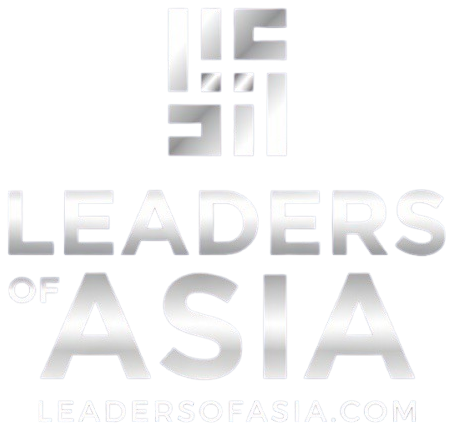Miftah Ismail: Economist, Business Leader, and Reformist Politician of Pakistan
Introduction
Miftah Ismail is one of the most respected and multifaceted figures in Pakistan’s recent history—an accomplished economist, industrialist, and political thinker. From shaping macroeconomic policy as Pakistan’s finance minister to driving the success of a major confectionery business, Ismail’s journey represents a rare blend of intellectual depth and practical leadership. In an era where Pakistan’s political and economic institutions face formidable challenges, Ismail emerges as a consistent advocate for rational economic planning, fiscal responsibility, and inclusive governance.
Early Life and Family Background
Miftah Ismail was born on July 23, 1965, in Karachi, Pakistan, into a business-oriented Gujarati family. His upbringing was embedded in a culture of entrepreneurship, integrity, and community service. His family founded and operated Ismail Industries Limited, a highly successful food and confectionery company. From a young age, Miftah was exposed to the complexities of running a business in a developing country. This dual lens—of economic systems and practical business—would later define his unique policy perspective.
Academic Excellence: From Karachi to Wharton
Miftah’s academic journey is as remarkable as his professional career. After completing his early education in Karachi, he moved to the United States for higher studies. He earned a bachelor’s degree in business administration from Duquesne University in Pittsburgh in 1985. Eager to pursue a deeper understanding of global economic systems, he went on to earn a PhD in Public Finance and Political Economy from the Wharton School, University of Pennsylvania, one of the world’s leading business schools.
At Wharton, he specialized in public sector finance, tax policy, and macroeconomics—subjects that would later become central to his policymaking. His doctoral training ingrained in him the ability to assess economic problems from a systems-level perspective.
Professional Start at the IMF
Ismail’s first major professional stint was as an economist at the International Monetary Fund (IMF) in Washington, D.C., where he worked on fiscal policy and macroeconomic development strategies. At the IMF, Ismail acquired firsthand experience in managing sovereign financial systems and navigating debt, inflation, and fiscal deficits—all issues that would haunt developing economies like Pakistan.
His time at the IMF helped shape his belief in structural reforms and the importance of creating sustainable fiscal policies that reduce dependence on foreign aid and promote local development.
Ismail Industries: Business Acumen in Action
After returning to Pakistan in 1993, Miftah joined Ismail Industries Limited, the family business that had become a household name through brands like CandyLand, Bisconni, and SnackCity. Under his guidance, the company not only expanded its domestic footprint but also entered regional and global markets.
Key milestones during his tenure include:
- Expansion into the snack food segment
- Establishment of state-of-the-art production facilities
- Introduction of stringent quality control and corporate governance practices
- Export growth in the Middle East and Africa
Ismail Industries became one of Pakistan’s largest food companies and a model for family-run businesses transitioning into professionally managed corporations.
Entry into Politics: Joining the PML-N
In 2011, driven by a desire to impact public policy more directly, Miftah Ismail joined the Pakistan Muslim League (N). His entry was welcomed, especially due to his strong economic credentials. Unlike many politicians who rise through dynastic politics or populism, Ismail’s ascent was based on merit, ideas, and expertise.
He was quickly appointed to significant advisory roles within the government, helping develop economic frameworks that promoted investment, growth, and fiscal responsibility.
Head of the Punjab Board of Investment and Trade
From 2012 to 2013, Ismail served as Vice-Chairman of the Punjab Board of Investment and Trade (PBIT). Here, he facilitated investment across diverse sectors and developed a reputation for professionalism and results. He championed:
- Investor facilitation services
- Public-private partnerships
- Sector-specific incentives for industrial development
This period cemented his image as a bridge between the private sector and government.
Chairman, Board of Investment (2013–2014)
Recognizing his effectiveness, the federal government appointed Ismail as Chairman of the Board of Investment (BOI) in 2014. During his tenure, he was instrumental in:
- Drafting the Auto Industry Development Policy
- Streamlining foreign direct investment (FDI) procedures
- Improving Pakistan’s ranking in the World Bank’s Ease of Doing Business Index
He worked tirelessly to market Pakistan as a viable investment destination, even in the face of security and governance challenges.
Minister of State and Finance Minister
In 2017, Ismail was appointed as a Special Assistant to the Prime Minister for Economic Affairs, and in April 2018, he became Federal Minister for Finance, Revenue, and Economic Affairs under Prime Minister Shahid Khaqan Abbasi.
His first tenure was short but impactful. He presented the federal budget for FY2018–19—the only non-elected technocrat to do so. He emphasized:
- Tax reforms and widening the tax base
- Incentives for exporters
- Reducing government expenditures
Ismail returned to the same ministry in April 2022, this time under Prime Minister Shehbaz Sharif, and faced a dire economic situation—record inflation, dwindling forex reserves, and a looming balance of payments crisis. He negotiated with the IMF, cut energy subsidies, and implemented painful but necessary reforms.
Though his policies drew criticism from some quarters, many economists lauded his approach for being rooted in realism and long-term thinking.
Reimagining Pakistan: Think-Tank and Discourse Leader
In 2023, Miftah launched “Reimagining Pakistan”, a non-partisan initiative aimed at fostering public discourse and intellectual debate about the country’s future. The platform organized seminars in multiple cities, featuring diverse voices, including journalists, activists, students, and business leaders.
Key themes included:
- Federalism and devolution of power
- Economic decentralization
- Taxation and development
- Institutional reform
This initiative positioned Ismail not only as a politician but also as a thought leader, actively engaging civil society in reform.
Departure from PML-N and Founding Awaam Pakistan
In 2023, Ismail parted ways with the PML-N due to strategic and ideological differences. Along with former Prime Minister Shahid Khaqan Abbasi, he launched a new political movement: Awaam Pakistan, formally announced in July 2024.
The new party focuses on:
- Constitutionalism and civil supremacy
- Fiscal responsibility
- Empowerment of local governments
- Investment in human capital
- Depoliticization of state institutions
Unlike traditional parties, Awaam Pakistan adopts a decentralized structure and crowdsources policies through consultations, research papers, and public debates.
Academic and Civic Engagement
Apart from public service, Ismail has served as:
- Adjunct faculty at the Institute of Business Administration (IBA), Karachi
- Chairman of the Karachi American School Board
- Guest speaker at global forums and think tanks
He frequently writes op-eds, appears on television, and delivers keynote speeches, influencing not just policies but also public perception of key economic issues. Miftah Ismail’s enduring relevance lies in his refusal to conform to the status quo. As both a policymaker and public intellectual, he has persistently advocated for rational governance, structural reforms, and inclusive growth.
His initiatives transcend partisanship, aiming instead to build a fairer, more resilient Pakistan. By elevating discourse and challenging traditional political norms, Ismail has become a vital voice for progressive change. Even outside the corridors of power, his influence continues through dialogue, education, and civic engagement. In a landscape hungry for sincerity and substance, Miftah Ismail offers a rare and necessary model of leadership rooted in integrity.
Criticism and Legacy
Like any public figure, Ismail has faced criticism—mainly for implementing IMF-backed austerity measures. His critics label him as too technocratic or out of touch with populist sentiments. Yet, even his opponents acknowledge his honesty, work ethic, and commitment to reform.
His legacy may be summarized as:
- A rare voice of reason in an often polarized political landscape
- A policy-driven politician who prioritizes national interest over party lines
- A reformist who promotes sustainability over short-term popularity
Miftah Ismail’s life encapsulates what a modern Pakistani leader can and should be: globally educated, ethically grounded, economically literate, and courageously reformist. Whether as a businessman, economist, or politician, he has consistently championed integrity, long-term vision, and inclusive growth.
As Pakistan navigates economic and political turbulence, leaders like Miftah Ismail represent the hope of a future where policy trumps populism, data shapes decisions, and dialogue drives democracy.
Bridging Boardrooms and Budget Books
Miftah Ismail represents a rare duality in Pakistan’s socio-political ecosystem—someone equally comfortable in the corridors of corporate power and the chambers of national policy. Having led a thriving business like Ismail Industries and overseen federal budgets as finance minister, his expertise bridges theory and action. In a country where politicians often lack economic literacy and business leaders shy away from governance, Ismail’s presence in both domains offers an uncommon blend of insight and execution.
He understands that economic policy isn’t just about numbers—it’s about people, incentives, and long-term structure. Whether reforming the tax system or pushing for ease of doing business, Ismail’s initiatives have been grounded in principles that reward productivity, encourage enterprise, and strengthen institutions. His business acumen lends him the credibility to speak with authority on industrial growth, trade logistics, and innovation—a perspective many career politicians lack.
The Human Cost of Fiscal Responsibility
While Miftah Ismail is lauded for fiscal discipline and realism, he has also faced significant criticism, especially for implementing IMF-driven austerity measures. Fuel and energy subsidies were slashed, and inflation surged—deepening the burden on the working and middle classes. Ismail, however, never shied away from acknowledging this trade-off.
His public statements often addressed the tension between immediate hardship and long-term solvency. He articulated, with clarity and compassion, that economic correction is painful but necessary to avoid systemic collapse. In contrast to the rhetoric-heavy approach of many leaders, Ismail used data, projections, and evidence to justify his choices—while pushing for targeted subsidies and welfare programs to protect the most vulnerable.
Champion of Merit over Lineage
In Pakistan’s dynastic political culture, where family names often carry more weight than ideas or education, Miftah Ismail’s rise stands out. His trajectory is defined by merit, intellect, and action—not birthright. He neither comes from a political dynasty nor relies on populist theatrics. Instead, his entry into politics was grounded in competence and national service.
Even within the PML-N, a party historically associated with industrial elite networks, Ismail’s value stemmed from his role as a technocrat and policy expert. His appointment as finance minister twice—despite not being an elected member of parliament—speaks volumes about the trust placed in his expertise. It also reflects the vacuum of capable economic minds in Pakistan’s political establishment, which Ismail consistently tried to fill.
Speaking Truth to Power—Even His Own
One of the defining features of Miftah Ismail’s career has been his willingness to question even his own political affiliations. His departure from the PML-N in 2023 was not abrupt but principled. He openly criticized internal party hierarchies, lack of inclusivity in decision-making, and the prioritization of short-term political gains over national interests.
Instead of fading away, Ismail chose to re-engage—this time through a more progressive and democratic platform: Awaam Pakistan. With a decentralised structure, focus on people-powered policy, and a call for constitutionalism, the new party exemplifies his belief that political reform must begin with internal democracy and ideological clarity.
Reimagining Politics Through Dialogue and Data
Through his think-tank and public engagement initiative Reimagining Pakistan, Miftah Ismail transformed the political discourse from personality-driven debates to idea-driven conversations. The forums held under this initiative brought together students, academics, journalists, business leaders, and civil society—encouraging policy literacy and civic participation.
Topics such as tax justice, federalism, minority rights, and decentralisation—often considered too “academic” for mainstream political debates—were now part of public conversation. This initiative reflected Ismail’s deeper ambition: to cultivate a politically conscious citizenry capable of demanding better governance, not just better slogans.
A New Template for Future Leadership
In a country where political charisma often trumps capability, Miftah Ismail sets a new template for leadership: fact-based, transparent, and policy-focused. His economic strategies, although tough, were backed by forecasts, studies, and consultation. He resisted the temptation of populist giveaways in favour of long-term correction—a stance that made him unpopular in some circles but respected among academics, investors, and independent thinkers.
He also showed how technocrats can play a constructive role in democratic setups without bypassing electoral processes. By entering the political space, engaging with party systems, and even launching his own movement, he bridged the gap between academia and governance—an important step toward institutional maturity in Pakistan.
Legacy in the Making
Miftah Ismail’s story is far from over, but his legacy is already forming. As an economic reformer, he’s left a blueprint for responsible fiscal management. As a business leader, he demonstrated how corporate growth can coexist with integrity and innovation. As a public intellectual, he’s nurtured a culture of discourse that Pakistan desperately needs.
Whether or not Awaam Pakistan succeeds as a political force, the ideas it promotes—transparency, decentralisation, economic justice—will remain part of Pakistan’s intellectual and policy landscape. And in that sense, Ismail’s influence extends well beyond party politics into the realm of national consciousness.
Conclusion: A Reformist Voice in a Resistant System
Miftah Ismail stands as a beacon of principled leadership in a system often resistant to reform. His journey—from boardrooms to budget sessions, and from cabinet roles to public forums—reflects a consistent commitment to data-driven policymaking, economic pragmatism, and institutional integrity. Unafraid to make unpopular decisions for the greater fiscal good, Ismail’s career has been marked by courage, intellect, and accountability.
What sets him apart is not just his technocratic expertise but his belief in empowering citizens through knowledge and dialogue. Whether through Reimagining Pakistan or Awaam Pakistan, Ismail has shown that politics must be more than power—it must be purpose-driven.
In an environment where slogans often eclipse substance, Miftah Ismail brings depth, nuance, and integrity. His work offers a template for a more mature democratic culture—one grounded in competence, inclusivity, and service. Regardless of electoral outcomes, his impact on political discourse and economic thinking in Pakistan is enduring.
If Pakistan is to navigate its complex challenges—economic, social, and political—it will need more leaders in the mold of Miftah Ismail: those who are willing to speak hard truths, challenge entrenched interests, and rebuild the system on principles rather than promises.






